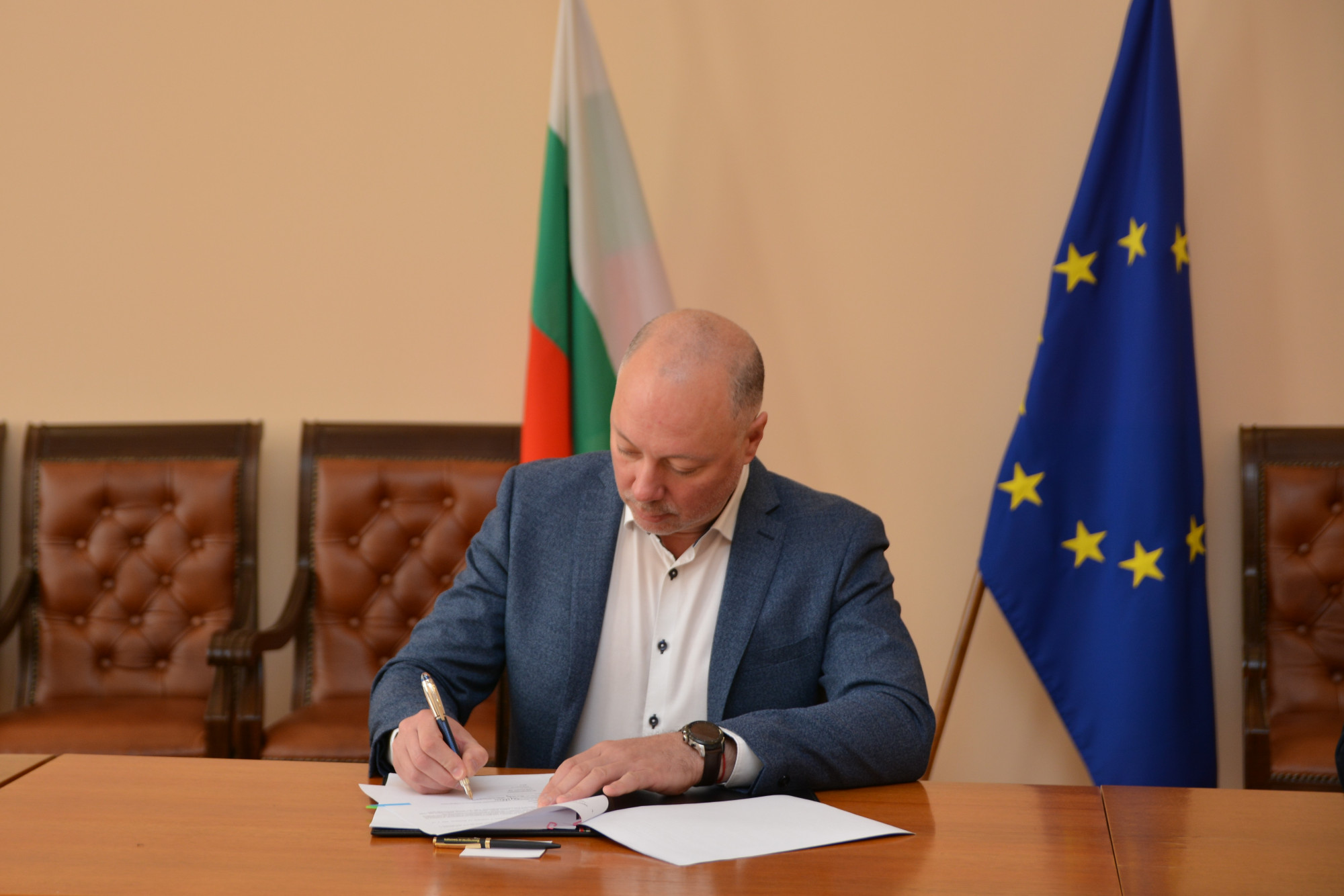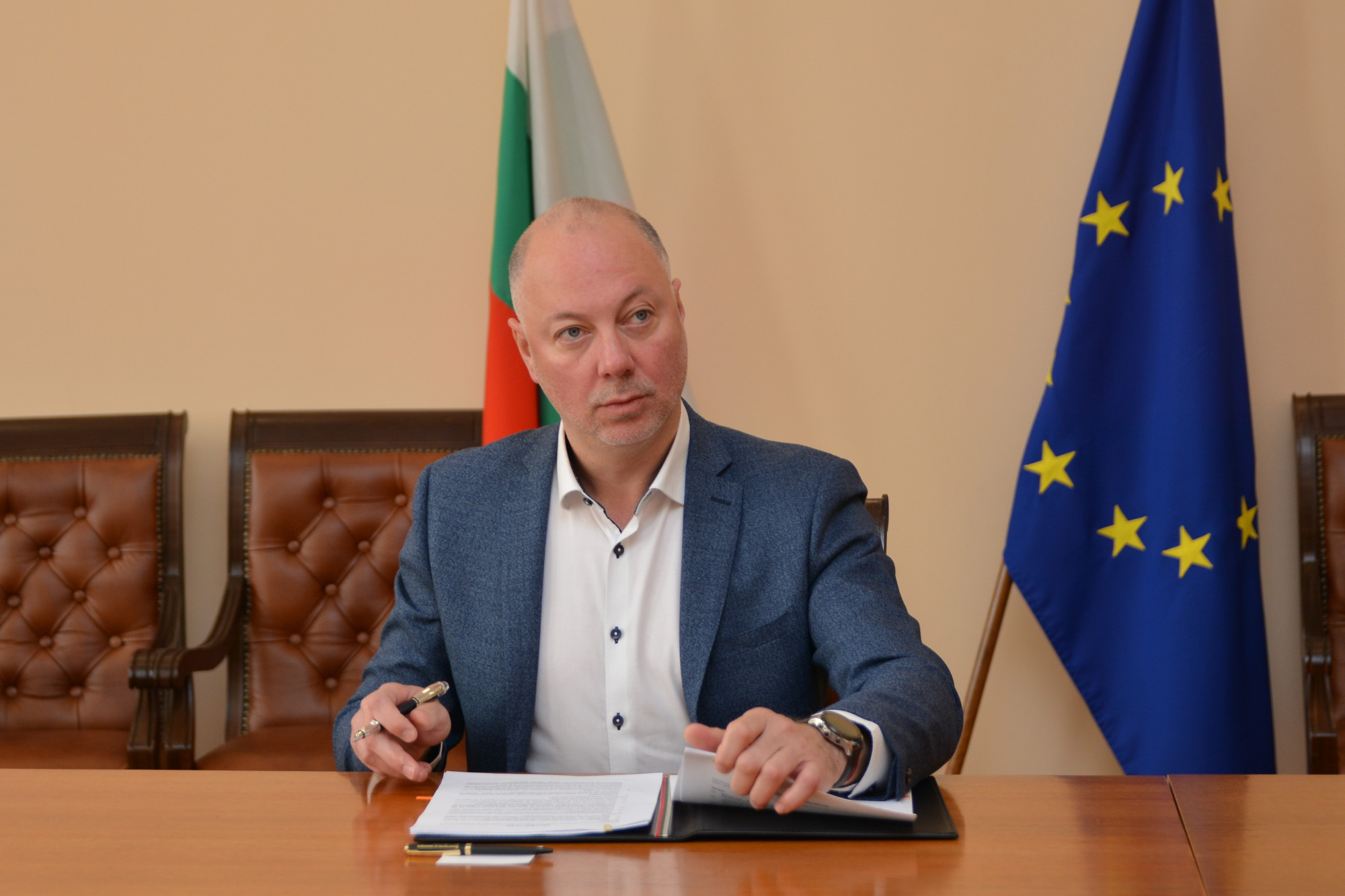The Additional Agreement to the Concession Agreement confirms the concessionaire's commitment to pay the upfront concession fee amounting to BGN 660 million, VAT included, to the state budget this month, as the Minister of Transport, Information Technology and Communications Rossen Jeliazkov stated today during its signing.
The Minister defined as an essential element of it the unconditional commitment of the parties to the Agreement to monitor the levels of air traffic and the revenues, at least once a year. "The aim and the purpose of the Additional Agreement are to restore the economic balance of the concession damaged by the COVID-19 pandemic. This equilibrium is the balance between the benefits for the parties and the consideration of the risks they have taken", Jeliazkov commented.
The deferment of the payment of the annual concession fees does not deprive the Bulgarian state of them and they continue to be due by the concessionaire. If the consequences of the pandemic are overcome, the payment of the deferred annual concession fees may be restored before the expiry of the deferral period.
The Additional Agreement increases the amount of the investment in Sofia Airport from EUR 608 million to EUR 624 million for the term of the concession.
********
Maintaining the economic balance of the concession of such long-term projects is a guarantee for their sustainability, for the trust between the partners, and last but not least, it is a mandatory requirement of the new legal framework of the European Union in the field of concessions.
The concession is the management of state assets that remain public state property, an element of critical infrastructure and objects of national security.
The commissioned independent analysis of the International Finance Corporation, part of the World Bank Group, highlighted the benefits for the state of transferring the risk of airport management to the concessionaire and stressed that a new concession procedure would require a reduction of the upfront concession fee by EUR 120 million (from 281.2 million to EUR 161.2 million), as well as the termination of the commitment to pay the annual concession fees. The readiness of 8 banks to finance the project confirmed its sustainability. Of these, 4 international financial institutions - the EBRD, the EIB, the Black Sea Trade and Development Bank and the World Bank Group. The banks state readiness to finance the project only on condition that the economic balance of the concession, disturbed by the COVID crisis, is restored.
The European Commission inspected the Concession Agreement and its planned amendment. The verification ended with a result showing that there was no state aid and that the amendment of the Concession Agreement did not constitute state aid and was in line with the changed economic situation as a result of COVID-19.
Currently, Sofia Airport is among the few airports on the Balkans that are still operated by a state-owned operator, depriving it of development and investment opportunities compared to other airports in the region. Even airports in Romania are looking for extension opportunities by attracting an international operator, including airports in Albania (Tirana and Vlora) are in the process of being concessioned.
The granting of a concession to Sofia Airport clearly distinguishes the functions and responsibilities of the state, which should not be a manager of the airport and at the same time a regulator. Such a "distortion" is neither in favor of public infrastructure management nor in favor of regulation.
Sofia Airport, which is of strategic importance to the state, the economy and society, should be navigated through the crisis in the best way, to ensure its sustainability and to place it in a competitive position with other airports on the Balkans. Public-private partnerships are the best way to do this.



